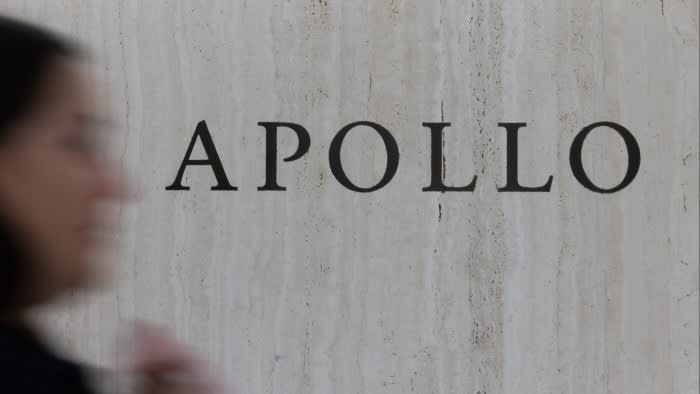Stay informed with free updates
Simply sign up to the Private equity myFT Digest — delivered directly to your inbox.
Private equity groups including Platinum Equity, Clearlake Capital and Apollo Global are struggling with the hefty debt loads of their holdings, Moody’s said on Thursday.
In a new analysis, the agency indicated that recent increases in interest rates have put the assets held by some of the world US’s fastest-growing PE groups under strain.
It said more than half of the companies in the portfolios of Platinum and Clearlake, both Los Angeles-based, are at heightened risk of default, with a rating of B3 or below.
Moody’s said the holdings of Clearlake, a co-owner of Chelsea Football Club, and Platinum had the highest leverage ratios of the firms it surveyed, while others had begun to reduce their debt loads.
The two groups have attracted tens of billions of dollars in recent years from top institutional investors in North America, transforming them from niche middle-market firms into dealmaking powerhouses.
While Clearlake grew from about $1bn in assets in 2008 to $90bn today, the size of Platinum’s funds has nearly quintupled during that time to almost $50bn in assets.
The report found that overall in the two years to August, portfolio companies of the top dozen buyout groups defaulted at a rate of 14.3 per cent, a figure twice as high as that for companies not backed by private equity.
Private capital powerhouses including Apollo Global and Ares Management have had buyouts suffer. Nearly a quarter of the Apollo-owned companies that Moody’s rates have defaulted since 2022, while 47 per cent of Ares-backed companies they follow are distressed, the agency said.
Platinum did not immediately respond to requests for comment. Representatives of Apollo and Clearlake disputed Moody’s definition of a default and said it was overly broad.
A representative for Ares Management declined to comment.
The industry has been hit by the swiftest interest rate increases in a generation, which brought down valuations that had soared during the pandemic and pummelled the balance sheets of thousands of highly leveraged private equity-backed companies.
Between January 2022 and August of this year, more than a third of the Platinum-owned companies rated by Moody’s underwent restructuring or a debt default. Seventeen per cent of Clearlake’s portfolio suffered the same outcome.
Clearlake also became an active user of so-called continuation funds, where the group in effect sells the company to itself and other investors — novel deals that will be tested by higher rates for the first time.
Earlier this year, car parts supplier Wheel Pros, one of Clearlake’s largest fund-to-fund deals, went bankrupt. Moody’s report said it considers similar deals by the group, including for software companies like Symplr, as distressed.
The fast-growing market for private credit has impeded rating agencies’ task, since such loans are more difficult to track than more traditional forms of borrowing.
As a result of the increased difficulty of analysis, buyout groups including Vista Equity, Carlyle and Thoma Bravo — historically among Moody’s most-frequently rated companies in the US — have now “nearly disappeared”, the agency said.
Private credit can “mask some issues” in a private equity firm’s portfolio, Julia Chursin, vice-president at Moody’s, said in an interview. “There could be some opaque credit risk which is absorbed by the private credit sector, although they claim they only pick good ones.”
https://www.ft.com/content/c32bc4a3-b73b-42ab-a651-5a029d59e41c


